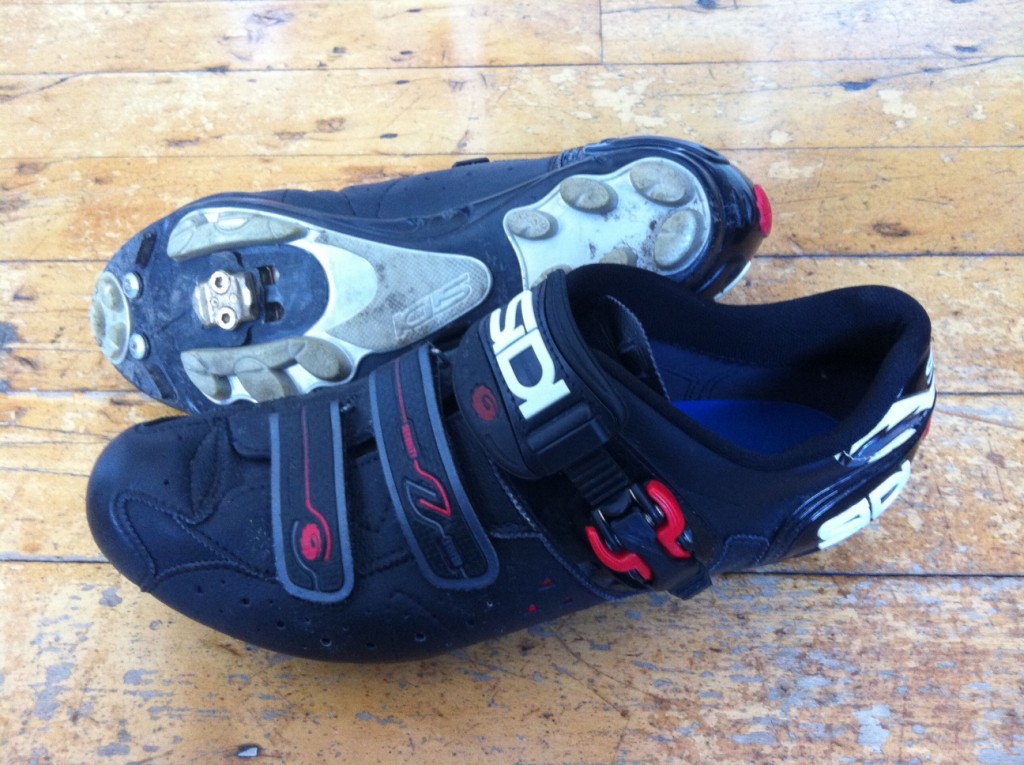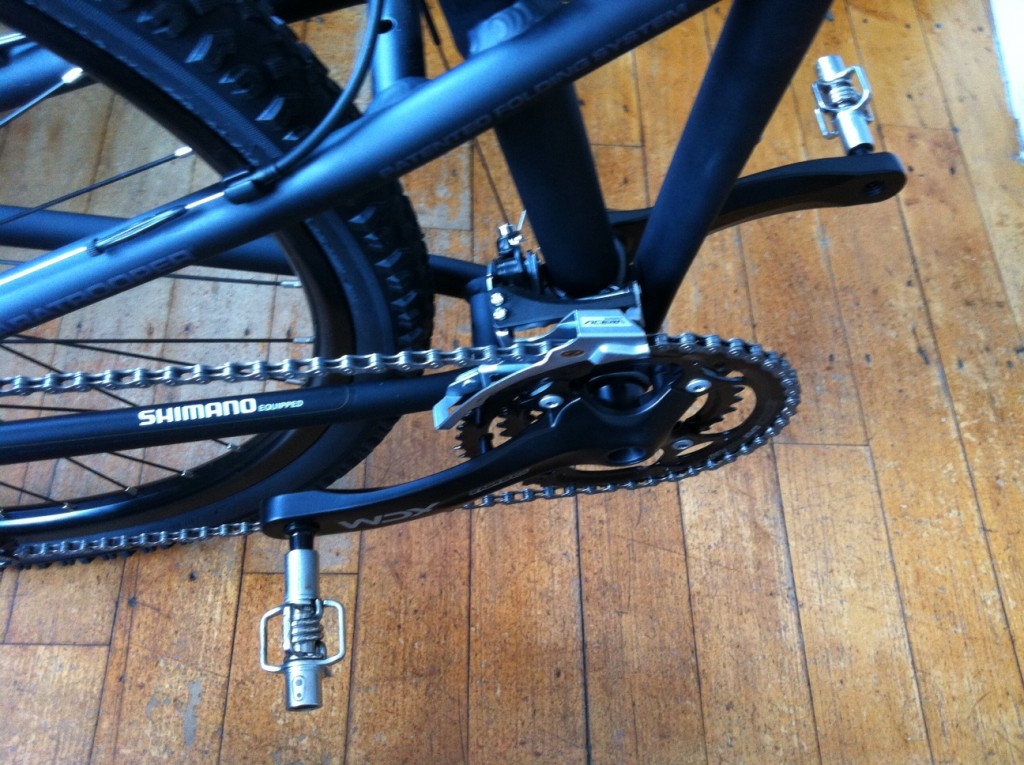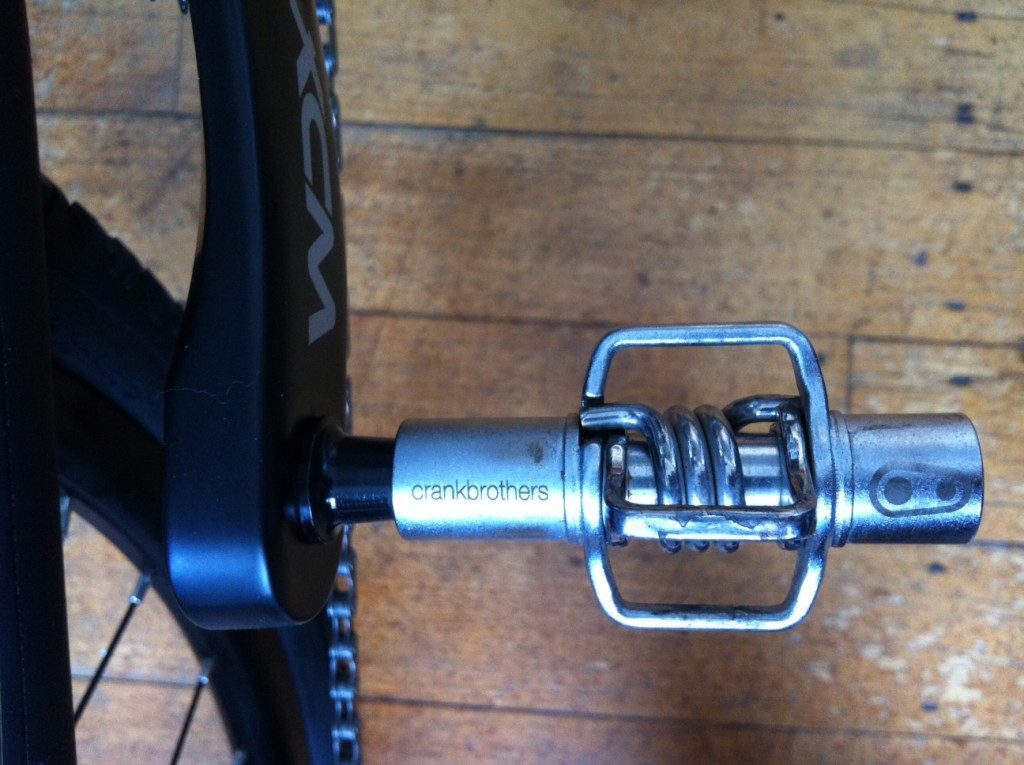I recently took the plunge into the world of clipless pedals, something I’ve been meaning to do for a while. I’ve been a long time cyclist but even for long distance rides, I had stuck to toe clips and straps. I’m strapped in right? That should be enough, right? I never thought the benefits of going clipless would really outweigh the drawbacks (because there are a few). The biggest being the need for special equipment, the shoes and pedals themselves. Depending where you’re going, you might need to bring an extra pair of shoes to change into, and depending what pedal system you choose, you might not be able to ride that bike with normal shoes.
Well, regardless of these factors, I have to say, clipless is incredible. The added power and control were immediately noticeable. A proper cycling shoe will be nice and snug on your foot, with a very stiff sole, and when that shoe is attached directly to the crank arm, the efficiency is unmatched. There is no movement of your foot relative to the pedal because essentially, your entire shoe is the pedal.
There are a few clipless systems on the market so if you’re considering trying them out, you have some choices. The most common being the Shimano SPD cleat. Now this is just the cleat and pedal interface so there are still several pedal body and shoe choices that can be used. I actually strayed away from SPD and chose the Crank Brothers Egg Beaters for my first foray into clipless pedals:
The CB Egg Beater is a very minimal design. Essentially stripped down to the bare essentials; an axle, bearings, and a mechanism to engage the cleat. It makes for very easy entry to the pedals as you can engage the cleat from all four sides, great for beginners. There’s no pedal body to get in the way, so it doesn’t matter which way the pedal is turned. Whichever pedal system you choose will come with a cleat that screws onto the bottom of your cycling shoes. The cleats for SPD and Crank Brothers are not the same, but they do mount in the same way, so you’re not limited on shoe choice.
Regardless of what clipless system you choose, they work essentially the same way. Push the cleat down into the pedal to engage, rotate your heel outward to disengage. It takes some getting used to so I would recommend practicing a bit before you get out on the road. The easiest way I’ve found is to put your bike in a doorway and hold on to each side to balance while practicing. With most pedals, there is also a way to adjust the release angle. With a CB cleat, attaching it one way will give you a release angle of 15 degrees and turning it around will give you a release angle of 20 degrees. As a beginner, starting with the smaller release angle will make it that much easier to disengage the pedal.
You should also consider the different between mountain bike shoes, and road shoes. Road shoes are pretty much smooth on the bottom with the cleat protruding down. They’re meant for one thing: riding a road bike, and they’re rather hard to walk in. Mountain bike shoes have thick treads on the bottom so they cleat is recessed. They’re made this way with the assumption that occasionally, you’ll have to jump off your mountain bike to hike around obstacles. They’re made to walk in! There’s no reason you can’t use mountain bike shoes on the road or on your commute so they are my shoe of choice. The ability to walk around comfortably and know you’re not damaging the cleat makes them superior in my mind.

I have to say, now that I’ve gone clipless, I don’t see myself going back.
Clearly, the CB Egg Beater cannot be ridden with normal shoes, but there are some platform/clipless combination pedals out there. There are even shoes on the market that look just like normal sneakers, but allow clipless cleats to be mounted. Look for an upcoming blog post on these other options!



